Eve Water Guard may not be the flashiest of HomeKit accessories, but anyone who had to deal with water damage knows the advantages of owning such a device.
Eve Systems launched Eve Water Guard in the fall of 2019 with additional information shared during CES 2020. Now, the device is finally ready for users to order.
We got our hands on one and installed it to try it out for ourselves.
Protect your home, and your wallet
Again — a water sensor is not the sexiest of smart home accessories. It doesn't fill your home with audio, it doesn't change to over a million beautiful colors, it doesn't adjust your temperature as you move about your home. If you're lucky, you will install the Eve Water Guard and never have to think about it ever again.
If you do hear from your Eve Water Guard, you'll be glad you do. Water damage in your home can be very costly as any long-time homeowner can attest.
A simple box
Eve Water Guard is a small square box that plugs directly into the wall. It has the Eve logo situated on the front within a recessed square. Around that front square is a hidden light that will illuminate in red should water be detected. This gives anyone who has a visual line of site notice something isn't right.
In the box is not only a US and Canada plug, but adapters that will guarantee it will work for AU, EU, and UK regions as well.
The various adapters snap into place on the back of the Eve Water Guard and are easy to replace if need be, but are primarily there to allow this to work around the globe right out of the box.
To detect water, the Eve Water Guard has a 6.5-foot sensor cable that plugs into the auxiliary port on the bottom of the device. On the end of the cable is a female aux port allowing the cable to be extended up to 490 feet.
This allows for some unique applications. You can place it just below your washer, or it can snake around the walls of your basement, or perhaps under all your lower kitchen cabinets.
If water should come into contact with any portion of this cable, the Eve Water Guard will flash red, emit a 100DB siren, and send an alert to your iPhone, iPad, and Apple Watch.
A crucial element to this equation is your Home Hub. HomeKit works locally on your network, but if you want remote control for your doors, sensors, lights, or anything else, you must have a Home Hub. This includes an Apple TV, an iPad you leave at home, or a HomePod.
Eve Water Guard is less useful if you can't get an alert remotely through your HomeKit Hub. If it is just while you are out picking up groceries, a small spill of water won't cause all to much damage in a short amount of time, but if it is while you are gone over a weekend, it could be more problematic. The short story is, we recommend having a HomeKit Hub.
Depending on the location, you may also need to pick up an Eve Extend. Eve Extend is a Wi-Fi bridge for certain Bluetooth Eve accessories that may be in remote locations. If this is used in a garage, basement, or remote part of the house, it won't be within Bluetooth range of your device. Enter, the Eve Extend. We've previously relied on the Eve Extend of accessories like the Eve Water controller and it comes in handy here as well.
App-enabled access
As a HomeKit-only company, of course the Eve Water Guard appears in Apple's Home app. It shows as a water detector and allows you to create scenes that are triggered when water is detected or simply get notified.
It can be assigned to a room like any other accessory and given its own easily recognizable name for access via Siri.
If you venture to the Eve app itself, you can also be guided through a water test which will ensure the cable (and any extensions) are working as intended.
Should you buy Eve Water Guard?
There are several different water-detecting HomeKit devices on the market. We last reviewed Fibaro Flood sensor which has the same purpose but with a vastly different approach.
Fibaro uses a set of pins on the bottom of a sensor that just sits on the ground to detect water. It takes a bit more liquid to trigger and can cover less ground but it runs on batteries which means it doesn't need to occupy an outlet to function. Each has its pros and cons but for our home, we prefer the more practical approach of Eve which also can be enhanced by extensions or the Eve Extend.
If you are in an apartment, a water sensor may not be as important as it would be if you own your own home or condo. If you do own, we'd highly recommend some form of water monitoring so that you aren't surprised by damage far too late. As we head into spring, rain will be more frequent which can cause damage on its own, other than what can spring forth from your internal plumbing.
Pros
- Can be extended to almost 500 feet of coverage
- Loud siren
- Easy integration with Apple HomeKit
- Visual, audtory, and remote alerts
- Can be triggered by a very small amount of water
- Can work in remote locations with Eve Extend
- Runs on outlet and not a battery
- Can save you from costly water damage
Cons
- Bluetooth means range is limited without Eve Extend or Home Hub nearby
- Not an exciting accessory to use
Rating: 4 out of 5
Where to buy
Eve Water Guard is now available to order from Amazon for $79.95.
 Andrew O'Hara
Andrew O'Hara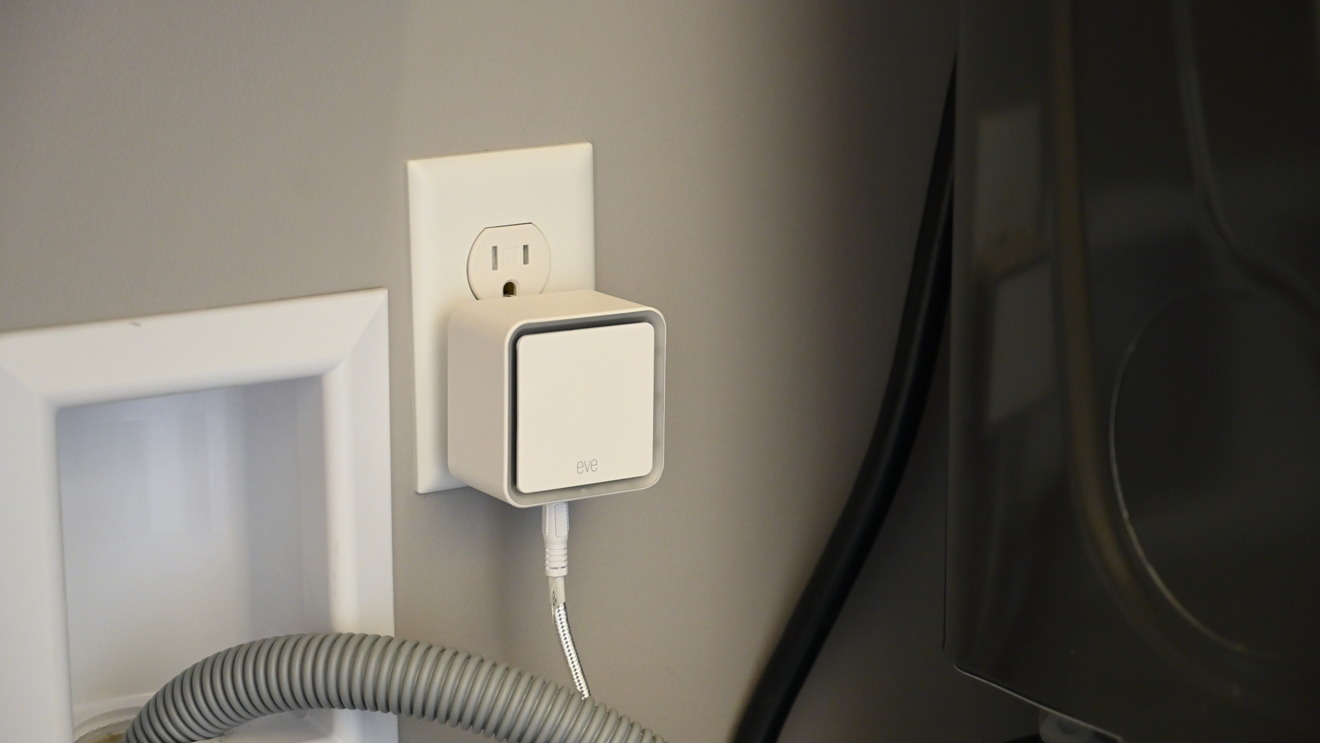
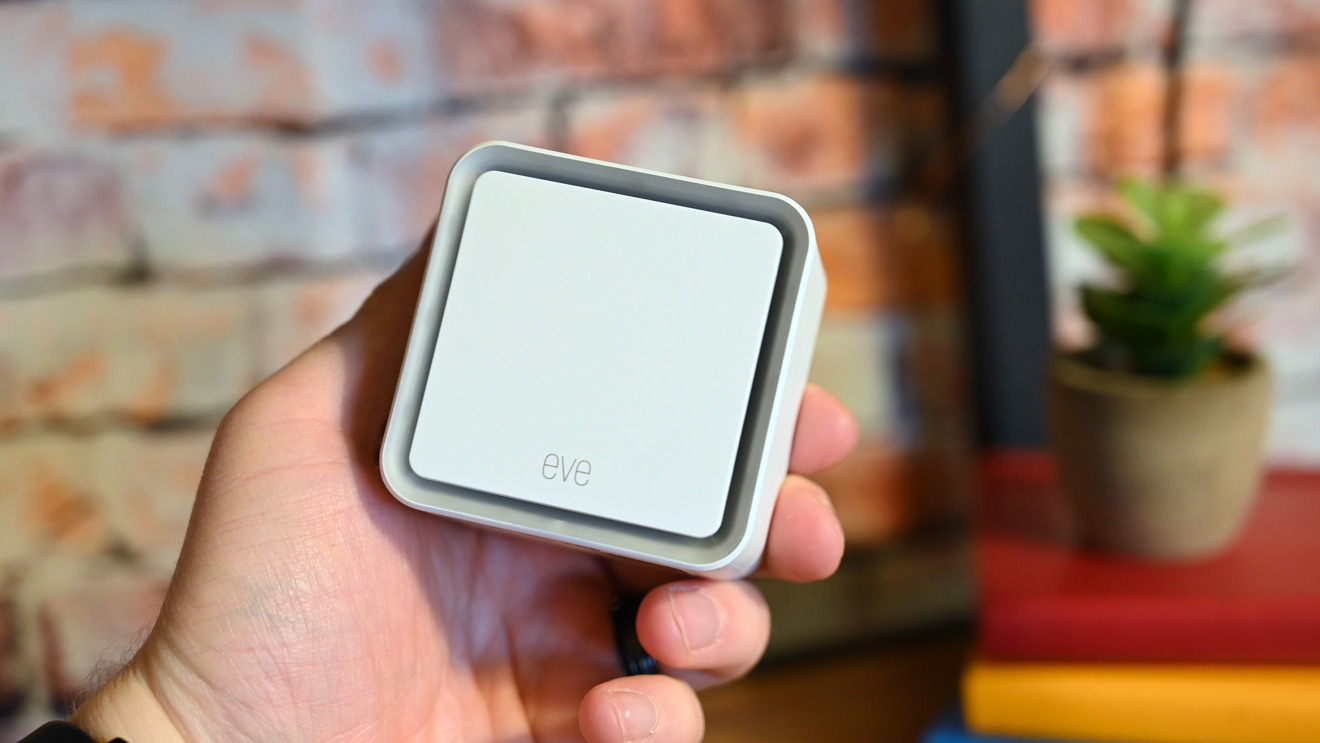
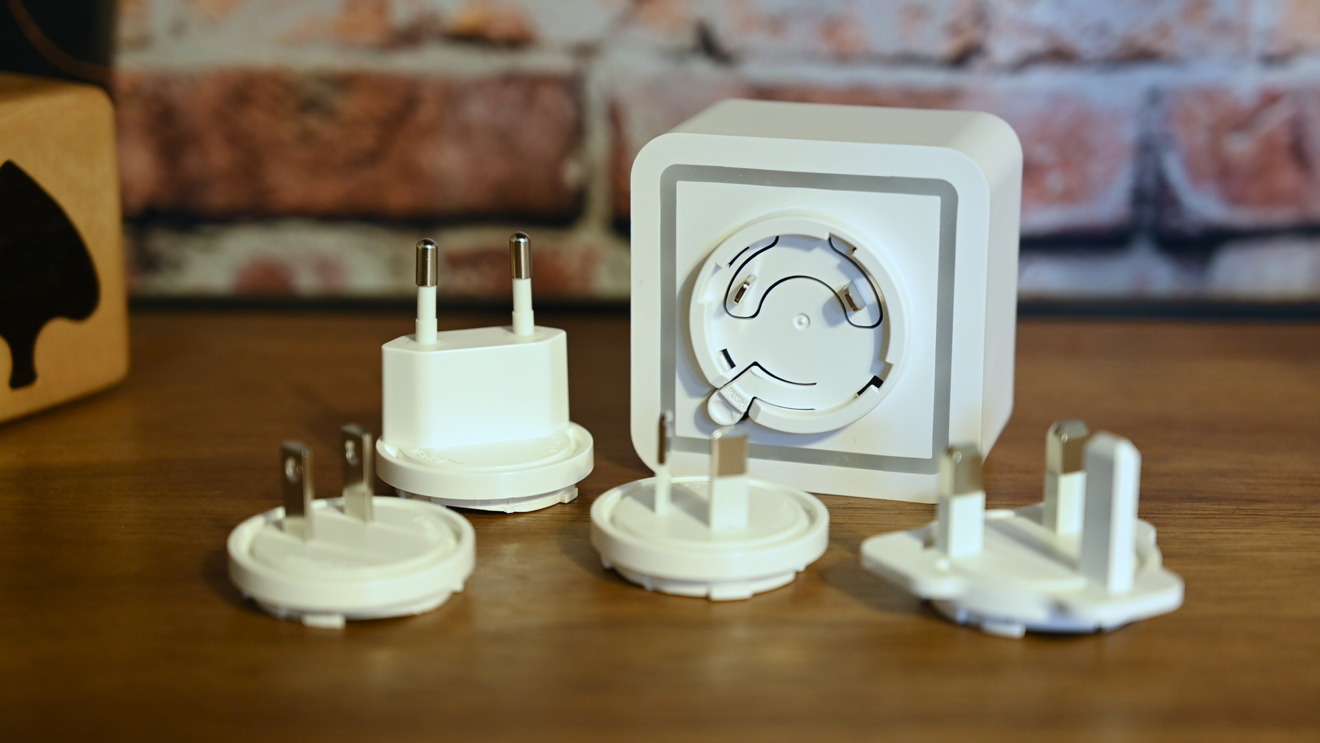
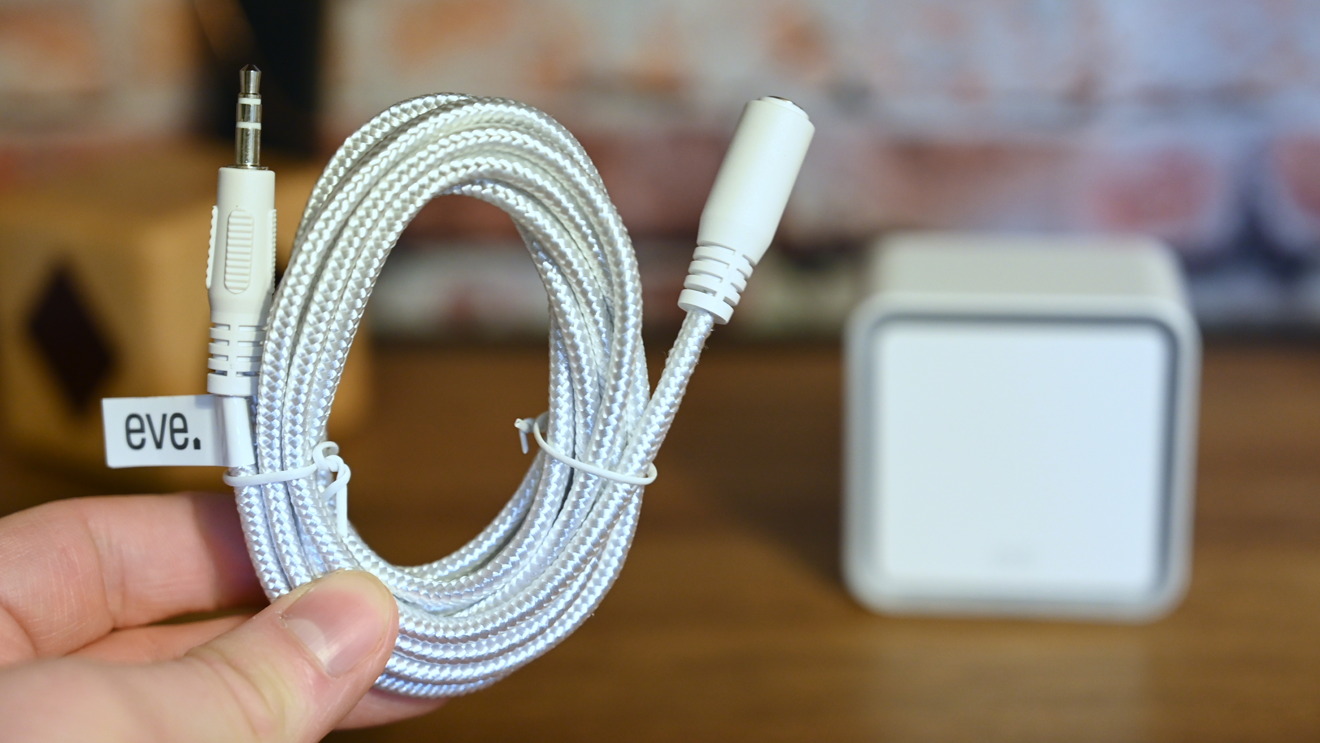

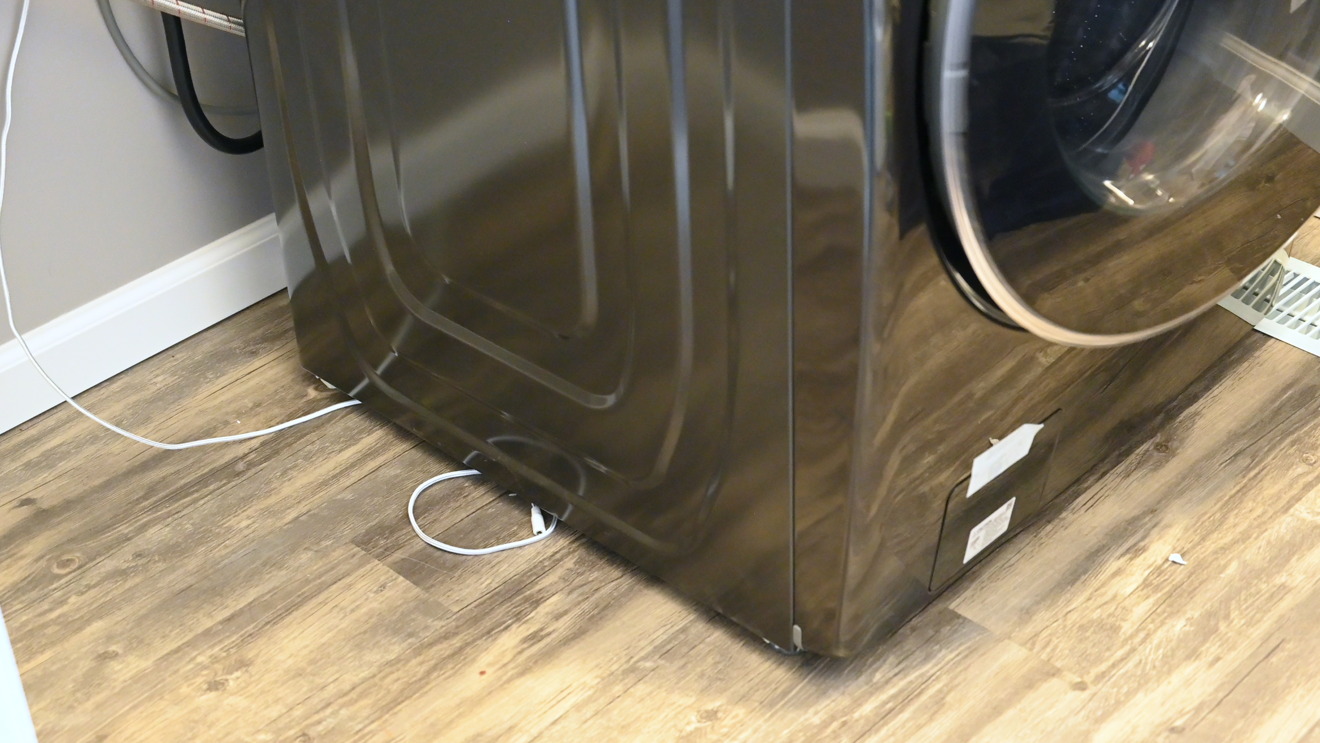

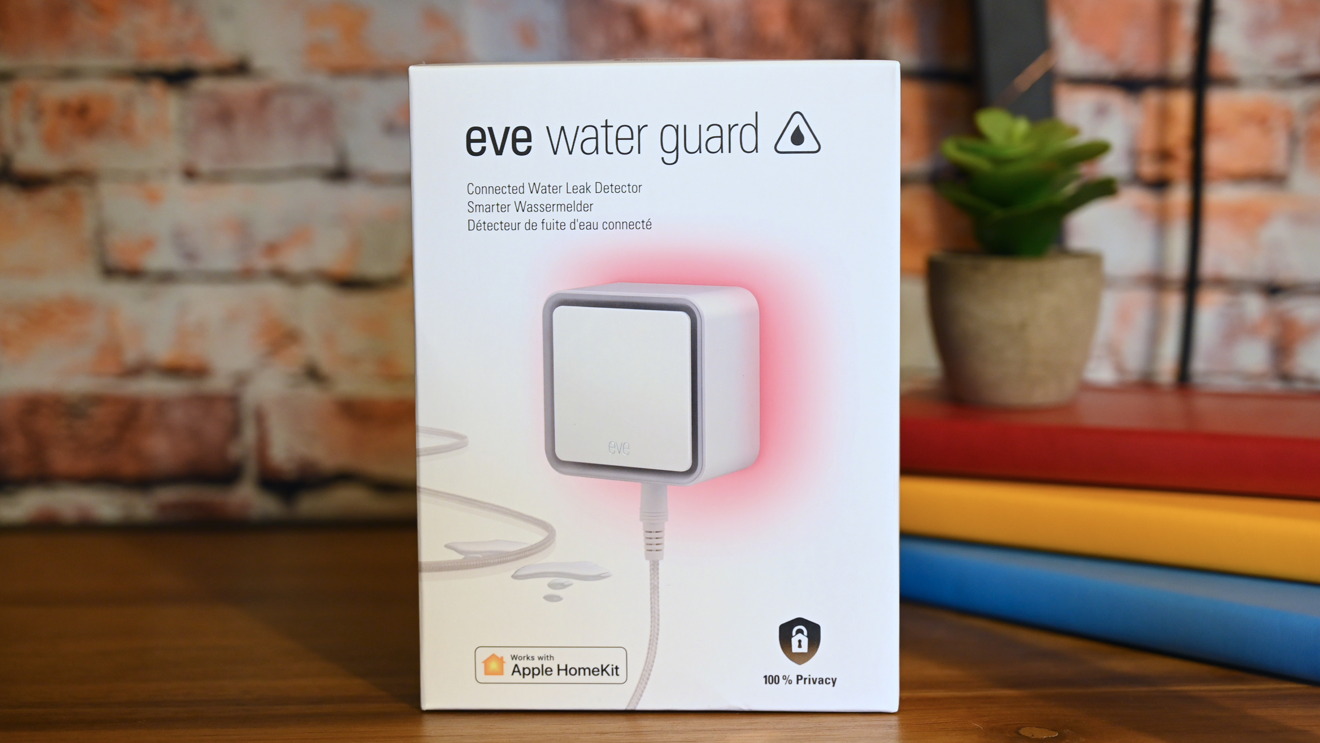







-m.jpg)






 Marko Zivkovic
Marko Zivkovic

 Malcolm Owen
Malcolm Owen

 Amber Neely
Amber Neely

 Wesley Hilliard
Wesley Hilliard










6 Comments
Most importantly, how frequently does this unit sample for the presence of water per minute?! This is an important detail.
The necessity for an electrical outlet and wired sensor probe may be an inhibitor for some applications. The battery operated Ring Alarm flood/freeze sensor is much more compact, about two-thirds the size of a hockey puck and no wires, which allows it to be placed just about anywhere, such as under a sink base, behind the washing machine, and most importantly in the hot water heater pan. I also think that Z-Wave+ is a more robust solution than Bluetooth. It would be interesting to see a performance comparison between the two different approaches to solving the same problem.
Runs off an electrical outlet but no passthrough -- yeah, it would be somewhat unwieldy to put that in considering the multiple outlet types this can handle. A lot of places that have a washing machine also have a dryer taking up the other half of a duplex outlet.
I have kind of a love-hate relationship with Eve (formerly ElGato) and HomeKit in general.
Like was said above, the stuff usually is late to the party and often has a profound Achilles Heel. El Gato and now Eve took a very long time to get the iOS app to play well and still lack Mac support. Netatmo, another company that makes HomeKit stuff, has similar issues. The US has yet to see the Netatmo Doorbell shown last year has not been offered for sale a year later.
Some of us have second properties that are distant or in remote areas and the hit and miss, hodgepodge aspect of HomeKit is frustrating. My property at Point Roberts, Wa (98281) is well over 2,000 miles from my current residence and nobody has a collection of HomeKit stuff that covers all of what is needed.